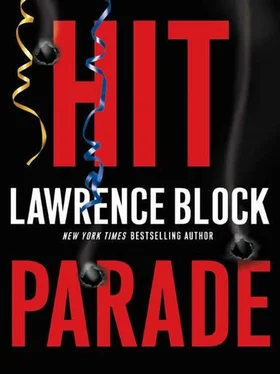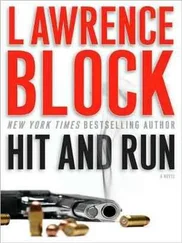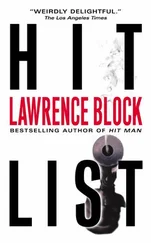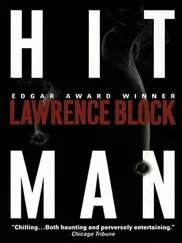“Does Mr. Egmont ever leave the property?”
“He plays golf every day. Unless it rains, and we’ve already established that it never does. He generally eats lunch at the clubhouse, they’ve got their own restaurant. He has a housekeeper who comes in a couple of times a week-they know her at the guard shack, I guess. Aside from that, he’s all alone in his house. He probably gets invited out to dinner a lot. He’s unattached, and there’s always six women for every man in those Geezer Leisure communities. You’re staring at his picture, and I bet I know why. He looks familiar, doesn’t he?”
“Yes, and I can’t think why.”
“You ever play Monopoly?”
“By God, that’s it,” he said. “He looks like the drawing of the banker in Monopoly.”
“It’s the mustache,” she said, “and the round face. Don’t forget to pass Go, Keller. And collect two hundred dollars.”
She drove him backto the train station, and because of the rain they waited in her car instead of on the platform. He said he’d pretty much stopped working on the food ship. She said she hadn’t figured it was something he’d be doing for the rest of his life.
“They changed it,” he said. “The Red Cross took it over. They do this all the time, their specialty’s disaster relief, and they’re pros at it, but it transformed the whole thing from a spontaneous New York affair into something impersonal. I mean, when we started we had name chefs knocking themselves out to feed these guys something they’d enjoy eating, and then the Red Cross took over, and we were filling their plates with macaroni and cheese and chipped beef on toast. Overnight we went from Bobby Flay to Chef Boyardee.”
“Took the joy out of it, did it?”
“Well, would you like to spend ten hours shifting scrap metal and collecting body parts and then tuck into something you’d expect to find in an army chow line? I got so I couldn’t look them in the eye when I ladled the slop onto their plates. I skipped a night and felt guilty about it, and I went in the next night and felt worse, and I haven’t been back since.”
“You were probably ready to give it up, Keller.”
“I don’t know. I still felt good doing it, until the Red Cross showed up.”
“But that’s why you were there,” she said. “To feel good.”
“To help out.”
She shook her head. “You felt good because you were helping out,” she said, “but you kept going back and doing it because it made you feel good.”
“Well, I suppose so.”
“I’m not impugning your motive, Keller. You’re still a hero, as far as I’m concerned. All I’m saying is that volunteerism only goes so far. When it stops feeling good, it tends to run out of steam. That’s when you need the professionals. They do their job because it’s their job, and it doesn’t matter whether they feel good about it or not. They buckle down and get it done. It may be macaroni and cheese, and the cheese may be Velveeta, but nobody winds up holding an empty plate. You see what I mean?”
“I guess so,” Keller said.
Back in the city,he called one of the airlines, thinking he’d take Dot’s suggestion and fly to Denver. He worked his way through their automated answering system, pressing numbers when prompted, and wound up on hold, because all of their agents were busy serving other customers. The music they played to pass the time was bad enough all by itself, but they kept interrupting it every fifteen seconds to tell him how much better off he’d be using their website. After a few minutes of this he called Hertz, and the phone was answered right away by a human being.
He picked up a Ford Taurus first thing the next morning and beat the rush hour traffic through the tunnel and onto the New Jersey Turnpike. He’d rented the car under his own name, showing his own driver’s license and using his own American Express card, but he had a cloned card in another name that Dot had provided, and he used it in the motels where he stopped along the way.
It took him four long days to drive to Tucson. He would drive until he was hungry, or the car needed gas, or he needed a restroom, then get behind the wheel again and drive some more. When he got tired he’d find a motel and register under the name on his fake credit card, take a shower, watch a little TV, and go to bed. He’d sleep until he woke up, and then he’d take another shower and get dressed and look for someplace to have breakfast. And so on.
While he drove he played the radio until he couldn’t stand it, then turned it off until he couldn’t stand the silence. By the third day the solitude was getting to him, and he couldn’t figure out why. He was used to being alone, he lived his whole life alone, and he certainly never had or wanted company while he was working. He seemed to want it now, though, and at one point turned the car’s radio to a talk show on a clear-channel station in Omaha. People called in and disagreed with the host, or a previous caller, or some schoolteacher who’d given them a hard time in the fifth grade. Gun control was the announced topic for the day, but the real theme, as far as Keller could tell, was resentment, and there was plenty of it to go around.
Keller listened, fascinated at first, and before very long he reached the point where he couldn’t stand another minute of it. If he’d had a gun handy, he might have put a bullet in the radio, but all he did was switch it off.
The last thing he wanted, it turned out, was someone talking to him. He had the thought, and realized a moment later that he’d not only thought it but had actually spoken the words aloud. He was talking to himself, and wondered-wondered in silence, thank God-if this was something new. It was like snoring, he thought. If you slept alone, how would you know if you did it? You wouldn’t, not unless you snored so loudly that you woke yourself up.
He started to reach for the radio, stopped himself before he could turn it on again. He checked the speedometer, saw that the cruise control was keeping the car at three miles an hour over the posted speed limit. Without cruise control you found yourself going faster or slower than you wanted to, wasting time or risking a ticket. With it, you didn’t have to think about how fast you were going. The car did the thinking for you.
The next step, he thought, would be steering control. You got in the car, keyed the ignition, set the controls, and leaned back and closed your eyes. The car followed the turns in the road, and a system of sensors worked the brake when another car loomed in front of you, swung out to pass when such action was warranted, and knew to take the next exit when the gas gauge dropped below a certain level.
It sounded like science fiction, but no less so in Keller’s boyhood than cruise control, or auto-response telephone answering systems, or a good 95 percent of the things he nowadays took for granted. Keller didn’t doubt for a minute that right this instant some bright young man in Detroit or Osaka or Bremen was working on steering control. There’d be some spectacular head-on collisions before they got the bugs out of the system, but before long every car would have it, and the accident rate would plummet and the state troopers wouldn’t have anybody to give tickets to, and everybody would be crazy about technology’s newest breakthrough, except for a handful of cranks in England who were convinced you had more control and got better mileage the old-fashioned way.
Meanwhile, Keller kept both hands on the steering wheel.
Sundowner Estates,home of William Wallis Egmont, was in Scottsdale, an upscale suburb of Phoenix. Tucson, a couple hundred miles to the east, was as close as Keller wanted to bring the Taurus. He followed the signs to the airport and left the car in long-term parking. Over the years he’d left other cars in long-term parking, but they’d been other men’s cars, with their owners stuffed in the trunk, and Keller, having no need to find the cars again, had gotten rid of the claim checks at the first opportunity. This time was different, and he found a place in his wallet for the check the gate attendant had supplied, and noted the lot section and the number of the parking space.
Читать дальше












